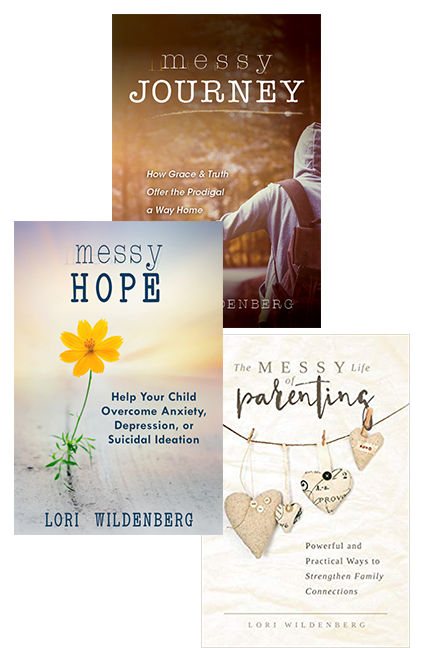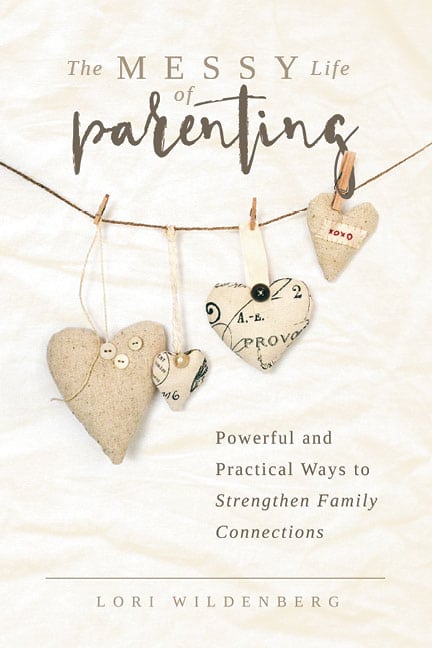 I received an email from a dad of children ages 5 and 2. His kids each demonstrate a preference for one parent over another. His two-year-old son prefers mom and shows his choice through crying and other behaviors. The five-year-old daughter favors dad. She verbalizes statements like, “Mommy, I’m glad you’re working late tonight.” Appearing to indicate she prefers time with dad. (Ouch… this type of thing can stab a mom in the heart.)
I received an email from a dad of children ages 5 and 2. His kids each demonstrate a preference for one parent over another. His two-year-old son prefers mom and shows his choice through crying and other behaviors. The five-year-old daughter favors dad. She verbalizes statements like, “Mommy, I’m glad you’re working late tonight.” Appearing to indicate she prefers time with dad. (Ouch… this type of thing can stab a mom in the heart.)
This dad asked me these questions:
- How do we as parents encourage our children to want to be with both of us?
- How do we stay on the same page a parents (and as spouses), when it is easy to have hurt feelings and/or be competitive with each other?
- How do we express to our children that they have hurt our feelings in a way that isn’t shame-inducing or creates a “complex” of some kind? We don’t want them to be walking on egg shells around us either.
Great questions. These questions come from a loving place of concern for the non-preferred parent and a desire for family unity and connection. The answer, however, has little to do with the adults’ feelings or family cohesiveness and more to do with the developmental stage of the child.
Verbally or non-verbally stating a preference is developmentally normal and a healthy part of the attachment process. Kids often seek out the parent who is around the most to meet their needs. Later that same child may seek out the other parent due to the need to identify with him or her. For instance a toddler boy may look to mom more than dad but when he reaches the age of 5 or 6 he may be drawn to dad. This is typical and appropriate.
An older child, could be trying to control her circumstances and environment by stating a preference–like the situation with the little girl mentioned in the concerned dad’s email. I encourage parents to focus on the need or complaint the child is trying to communicate rather then words she is using. She may state,”Mommy I’m glad you are working tonight” yet she may really mean, “I am going to be OK when Mommy goes to work because my dad is here. I am still safe.” The child is attempting to tell herself her world is OK even though she has a little attention grabber two-year-old brother and home is still secure because dad will be there. It is easier said than done but try not to take her words personally and avoid saying, “That hurts Mommy’s feelings.” She needs to know that her parents can handle her feelings. She also needs to understand she is not able to manipulate her parents’ emotions. Re-framing the feelings to facts is one way to redirect statements that on the surface appear mean and insensitive, “Mommy will see you in the morning and I get to hang out with you tonight.”
Some children use these comments as a way to control their parents’ feelings and even actions. Rather than feeling concerned your child doesn’t love you (your child does love you but may not favor you at this moment) be confident in your role as mom or dad, “I know you prefer to have Mommy put you to bed. That’s OK, Mommy is good at that. Tonight is my turn so you get me.” If you can toss in some humor-no sarcasm- even better. By saying things in a lighthearted and factual way the child is free to express his preference or feelings without worrying about mom or dad’s reaction. This sets the stage for trust building and open communication. Learning daddy and mommy can’t be manipulated or controlled while discovering life goes on even when a preference isn’t realized increases emotional security. These are good long term life lessons that have very little to do with favoring one parent over another.
Here are four things to avoid and four actions to include in your parenting:
Avoid Coercion:
Preferred parent, “Let Daddy read to you and I’ll give you a treat.”
Non-preferred Parent: “Let me read to you and I’ll give you a treat.”
Instead Strive for Connection:
Preferred Parent: “Remember when Daddy read that story and you two laughed so hard?” or “Daddy is the best story teller ever.”
Non-preferred Parent: “I know you prefer to have Mommy read. She is a good storyteller. Tonight is my turn.”
Avoid Competition:
Preferred Parent: “You love me best.” “Daddy isn’t as good as Mommy at reading stories.” “Who do you want to read to you tonight?”
Non-preferred Parent: “Pick me! I’m going to read the story with an English accent. You will love it even more than you love Mommy’s stories.”
Instead Seek Cooperation:
Preferred Parent: “It’s Daddy turn to read. I will read tomorrow. I love you. Goodnight.”
Non-preferred Parent: “Mommy won’t be reading tonight. You get to have me read to you.”
Avoid Role Restriction
Preferred Parent: “I’m the fun one.”
Non-preferred Parent: “I’m the disciplinarian.”
Instead Implement Role Releasement:
Preferred and Non-preferred Parent: Both need to join forces in sharing the responsibility of relationship building and rule enforcement. Learn from each other. Support one another’s efforts.
Avoid Creating a Barrier:
Preferred Parent: “You will go to dad if you don’t….” (going to or being with one parent should never be a threat or a negative thing) Or any version of,”Wait till your dad gets home…” (Punishment approach)
Non-preferred Parent: “He only wants you anyway…” (Passive aggressive reaction)
Instead Construct a Bridge:
Preferred Parent: “Dad loves you and loves being with you.”
Non-preferred Parent: “I love being with you.”
If moms and dads fall into the snare of jealousy or competition the situation escalates and is exacerbated. And… the child’s main need is not addressed or noticed. Instead focus on being the best parent you can be rather than wanting to be the favorite flavor of the moment. Be consistent in your love. Affirm your child, encourage his relationship with both parents, provide security while enjoying some family fun. moments.
Love is patient, love is kind. It does not envy,
it does not boast, it is not proud. It does not dishonor others,
it is not self-seeking, it is not easily angered,
it keeps no record of wrongs.
Love does not delight in evil but rejoices with the truth.
It always protects, always trusts, always hopes, always perseveres.
Love never fails.
1 Corinthians 13:4-8a




Trackbacks/Pingbacks